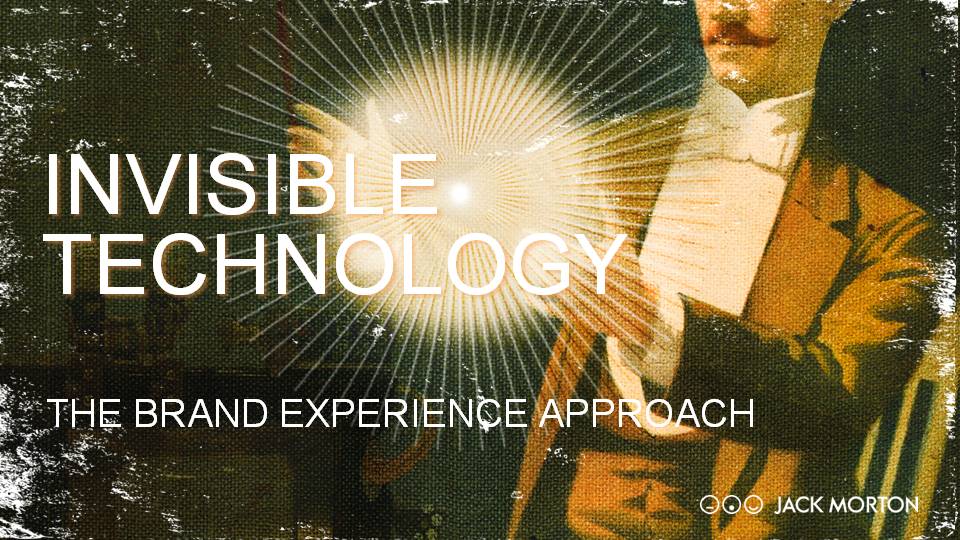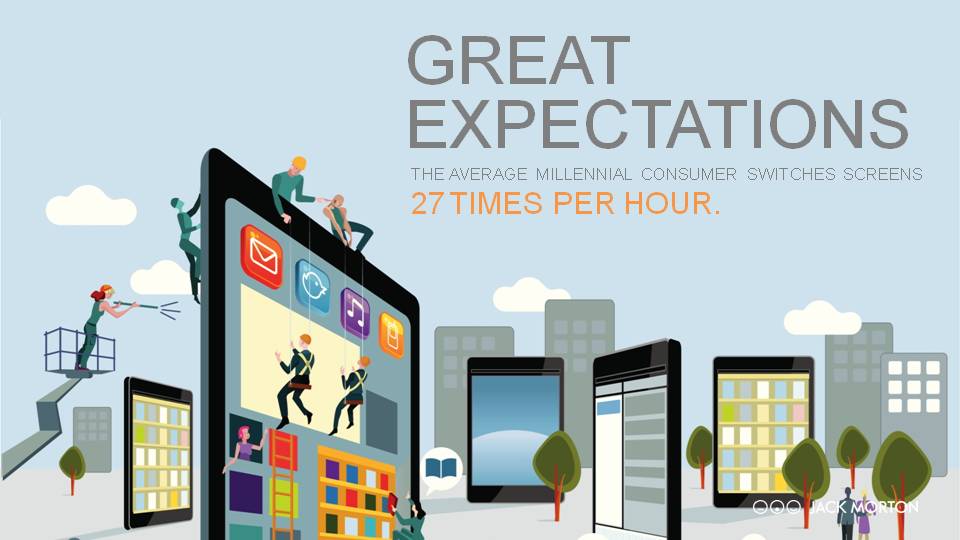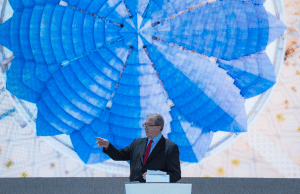The world is hungry for content that is relevant to their needs and interests
At Crossover in LjubIjana I talked about the relationship between events and technology. It’s a subject of much debate and experimentation; clients are asking for the latest technology and our industry has a rich heritage when it comes to harnessing new and innovative technologies to create ever more impressive, immersive and interactive experiences.
But technology is not without its dangers. I cautioned that when we buy wholesale into the latest and greatest technology we risk using it for its own sake, forgetting that it is great ideas – not great technologies – that engage audiences and deliver effective results for brands. Just look at what is happening with virtual reality right now: it is almost being written into the brief as a ‘must have’. And, whilst VR is undoubtedly a technology that is rich with possibilities when it comes to experience, it is not the answer to every experience brief.
At Jack Morton, there are four Experience Principles that we live by:
- Be human
- Be useful
- Invite participation
- Build a community

When we think about technology, it is sometimes easy to get caught up in the thrill of the new and forget these timeless principles, particularly the first one. Being human doesn’t mean being analogue, but it does mean respecting those qualities that make events and experiences so valuable to us; such as spending time with others, hearing stories told from the heart and being able to interact or even shape content.
The best technology – the most human technology – is invisible technology. Because life is not experienced in neat silos, we transition without pause from face to face to the printed page to social media to mobile app to search and so on. So the best technology is that which is invisible and which helps us make these seamless transitions.
So technology can be a great enabler, but it can’t create a great experience on its own
When it comes to the other experience principles – being useful, inviting participation and building community – content and communications have a vital role to play, especially in the extended life of an event.
That is to say, content and communications are the connective tissue that take us beyond the magical hours or days when people are gathered together in person in one place.
We know that, when it comes to return on investment, it is vital to extend the value of an event beyond that immediate time and beyond that immediate audience. Content and communications hold the key, yet they are often fragmented and siloed. A lot of time and effort is invested in creating presentations, on-screen content, graphics panels or print elements but, typically, they have no life beyond the event itself.
This represents a golden opportunity; an opportunity that technology can help with. An opportunity that is too often squandered.
This is not a technical or technology-related challenge. This is a strategic challenge.

For an increasing number of our clients, it is content marketing, fuelled by event experiences and enabled digitally, that is helping meet this strategic challenge.
Of course using content to market your brand or products is not new; Michelin has been a practitioner since 1900 with its Michelin guides. But in today’s landscape, where traditional channels are in decline and where online is heavily mediated by search and disrupted by ad-blocking, content-driven marketing massively outperforms in driving engagement and retention.
For those of us working in the MICE business, content marketing has an additional relevance and attraction. We create highly valuable and desirable content by the very nature of the work we do, even if we don’t always realise it. For most content marketers, sourcing or creating content is their biggest challenge. In our industry, however, we have always been creating killer content. It’s just that we often haven’t had a strategy to share it or to target it as a marketing tool.
The overarching key to the success of content marketing is developing a deep understanding of your audience. Analytical tools and research will reveal what your wider audience are already searching for online and, once you know that, you can start to create a content plan aligned with your events and communications plan.
Start asking:
- How can we share the content from our event?
- Which channels should we use?
- What is the optimum timing to release the content?
- How do we promote this content?
And, importantly, how do we design our event from the ground up to ensure that we are planning for content to be shared more widely? Chances are, this question alone will force a significant re-think about how certain elements might be designed or captured on-site.
Finally, be ready to fail fast and optimise. Content marketing requires agility and a focus on serving your audience’s needs rather than sticking to a rigid format or satisfying internal stakeholders. A deep understanding of analytics allows you to iterate content to optimize and to demonstrate the return on investment from content marketing, so it’s essential to ensure that all relevant agencies are involved in setting up the metrics and tracking.
The world is hungry for content that is relevant to their needs and interests. By sharing the incredible content that we create for our meetings, events and experiences more widely through effective content marketing, we can meet that hunger, thereby being useful, inviting participation and building community – way beyond the confines of the event itself. What’s more, by using technology to help us do this in a seamless, almost invisible way, we can be human. And being human is something that our industry understands very well.














